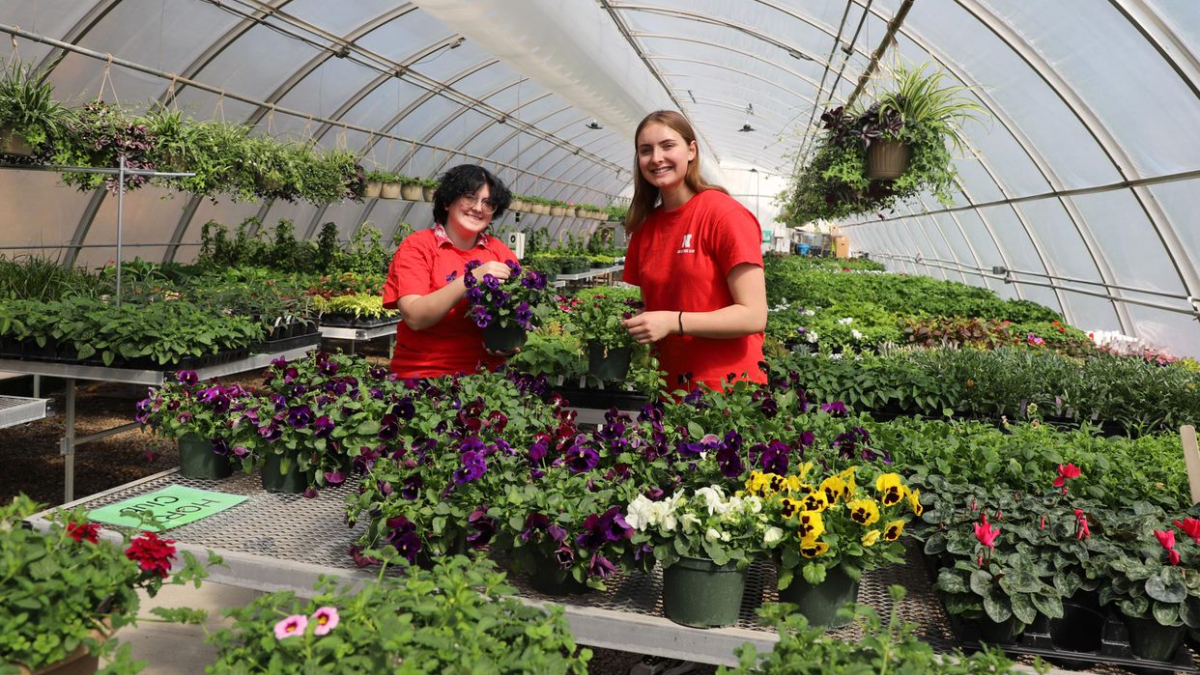
by Geitner Simmons | IANR Communications
Providing well-designed experiential learning early in a student’s undergraduate career can have great benefit, the University of Nebraska-Lincoln’s Department of Agronomy and Horticulture has found. A key example is introducing freshmen to scientific lab work.
William Anderson, a sophomore plant and landscape systems major from Gothenburg, says his freshman lab experience connected strongly with his interests and goals. He worked in a lab under David Holding, a professor specializing in plant breeding and genetics. The lab studies the breeding of sweet corn and popcorn.
Exposure to lab work as a freshman “was a good way to get a foot in the door,” Anderson says, “plus getting started on the whole track of developing a lab sense.” The experience proved “really valuable for me.” He has continued work in the lab, developing his knowledge and abilities, and he plans to pursue graduate work in plant breeding and genetics.
Anderson says he has especially benefited from how his classroom instruction and lab experiences complement each other in broadening his scientific understanding. As he has taken PLAS 215, a genetics course, “having that parallel in the lab has been really neat,” he says. “I’ve been able to make connections back and forth, whether it’s why we do something in the lab the way we do or learning that this concept is part of genetics and here’s why we do it in our lab.”
In some cases, the lab work has a benefit by helping students learn that their interests lie elsewhere in the department’s curriculum. That was the case for Taylor Cammack, a senior from Dewitt who is pursuing studies in landscape design and management. The counsel she received from a graduate student and research technician during her lab experience proved invaluable in helping her think through her academic path.
“They listened and they cared and they offered advice,” she says.
That type of support, to help students better understand their academic interests and goals, is a key departmental focus, says Martha Mamo, the department’s head and the John E. Weaver Professor of Agronomy and Horticulture.
Cammack has been a department ambassador for two years, meeting with potential students and helping with UNL recruitment. She also is a mentor to Nebraska high school students through the STEM-focused Cultivate ACCESS program. Important pluses for Agronomy and Horticulture students, she says, include smaller class sizes and opportunities for mentorship by faculty.
Providing students with meaningful internship opportunities is another departmental priority. Cammack’s undergraduate experience provides an example. Last summer, she interned at Lauritzen Gardens in Omaha, and this summer she will begin a year-long internship at the National Arboretum in Washington, D.C.
“Internships are huge,” says John Tines, a junior turf management major from Lincoln who has had a range of work experiences while interning at golf courses in Lincoln and Atlanta. “You’re able to apply what you’re learning in class” and gain experience in real-world conditions.
The industry partners and other stakeholder institutions supporting Agronomy and Horticulture provide a range of support including internships as well as scholarships, lectures, events and co-curricular activities, Mamo says. An Alumni Advisory Council provides important guidance as the department prepares students to meet the ever-evolving conditions in modern agriculture.
Tines says his early experience in a co-curricular activity, the turf bowl team, benefited him greatly. The competition spurred him to better appreciate the scientific sophistication and complexity of high-standard turf management. “Just from taking the test,” he says, “I realized there were so many things I needed to be thinking about that I hadn’t necessarily thought about before.”
Charlotte Brockman, a sophomore agronomy major from Gooding, Idaho, with an interest in international development, similarly says her freshman experience on the soil judging team has had a lasting positive impact for her.
“I dove headfirst into the team and that class as a freshman,” she says. “My first experience in a UNL lab was with the soil judging team. My first field trip at UNL was with the soil judging team. It really has become an integral part of my experience at UNL. I've been able to interact with people I never would have been able to interact with otherwise."
More details at: https://go.unl.edu/pbt8